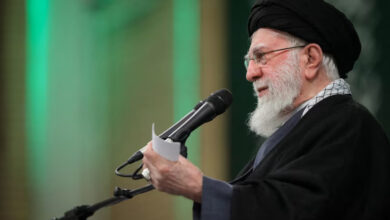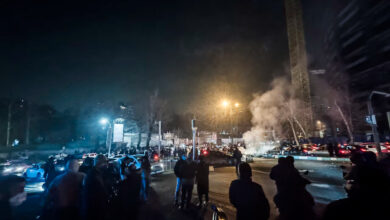Egypt's Emergency State Security Court on Sunday ordered–for the seventh time–the release of an Egyptian Shia Muslim arrested for alleged involvement in planned terrorist activity.
Mohammed Farouk al-Sayed was one of 12 Egyptian Shia Muslims to have been arrested since May of last year. Some of the men were later released, while five currently remain in detention.
When the court previously ruled to release al-Sayed, the Ministry of Interior simply countermanded the order.
Such a policy, read a statement issued on Sunday by the Cairo-based Egyptian Initiative for Personal Rights (EIPR), "reveals the despotic nature of the Ministry of Interior and [the fact] that it's not subject to the rule of law.”
Apart from its large Christian minority, Egypt is overwhelmingly Sunni Muslim. Some local rights groups claim that non-Sunni Muslims, including Shias, are regularly exposed to systematic intimidation.
According to Adel Ramadan, a lawyer with EIPR, Shia Muslims–Egyptian nationals or otherwise–are subject to "systematic violations by the state."
Al-Sayed had been one of a group of Shia Muslims who had held regular peaceful meetings. Egypt’s State Security Investigations Service, however, suspected the gatherings were related to terrorism and therefore represented a possible threat to Egyptian national security, Ramadan noted.
"In the arrest memo [issued by the Ministry of Interior], the report must indicate the reason for arrest," Ramadan said. “In all cases involving Shia Muslims, there's a reference to ‘terrorist’ operations.”
Crackdowns on Shia Muslims have become commonplace in Egypt–including arrests, detention and lawsuits–in recent years, according to reports by local human rights groups.
Last week, a group of detained Shia Muslims, some of whom were foreign nationals, won a court ruling ordering their release. Nevertheless, several of them still remain in detention.
Since the 2003 US-led invasion of Iraq, the sectarian divide between Sunni and Shia Muslims has deepened, allowing some regimes in the predominantly Sunni-Muslim Middle East to accuse their Shia brethren of “threatening regional stability” to serve “Iranian interests. President Hosni Mubarak, for his part, has accused Shia Muslims in the Gulf of being more loyal to Tehran than to their home countries.
Egypt has had no diplomatic relations with Iran since 1979–a year that witnessed both the signing of the Egypt-Israel Camp David peace treaty and Iran’s Islamic Revolution.
Generally, Shia Muslims believe that Ali, first cousin of the Prophet Muhammad, should have succeeded the latter as Islam’s first caliph instead of the Prophet's companion, Abu Bakr.




